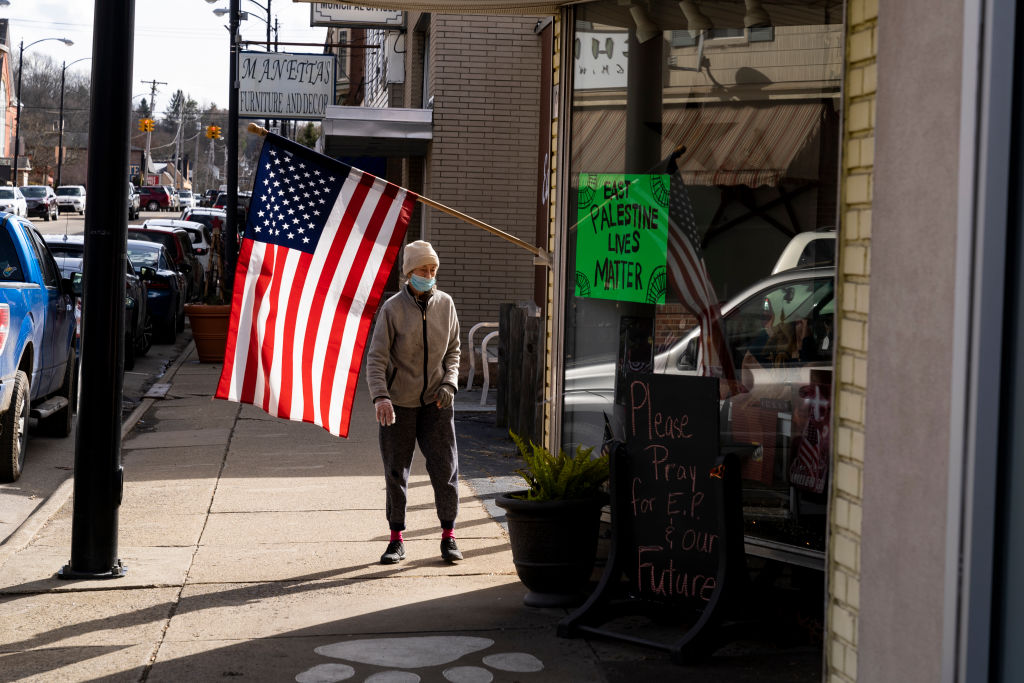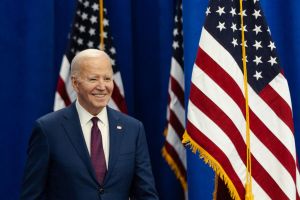The East Palestine, Ohio, train derailment has thrust rural America into the national spotlight. Town mayor Trent Conaway, a hefty, scruffy figure who resembles many a resident of flyover country, has been all over cable news expressing his “frustration” over how the federal government has handled the disaster.
“Frustration” is exactly the word I’d use to describe the predominant feeling I encountered last week during my visit to East Palestine. It’s the same attitude I come across constantly in my rural Pennsylvania homeland. The way the East Palestine disaster has unfolded magnifies the rural perception of government, and both sides of the aisle would be wise to take a closer look and listen.
Several East Palestine residents told me they weren’t surprised that President Biden and transportation secretary Pete Buttigieg had not yet visited their town. (Buttigieg finally made the trip last week, twenty days after the wreck.) Even with low expectations, these leaders’ absence still stung. I didn’t get the impression the people of East Palestine expected Scranton Joe and Mayor Pete to fix the problem (Biden was busy erroneously blaming Trump’s deregulation of trains for the wreck), but the fact that they didn’t even attempt a show of solidarity confirmed their notion that these political elites don’t care about them.
Most rural people live where they do for a reason. Their lifestyles aspire to two phrases: “don’t tread on me” and “a country boy can survive.” They’re renowned for their practical knowhow and are pretty content to mind their own business and be left alone (though as I witnessed in East Palestine, they take care of one another). Historically, rural folk haven’t sought government intervention, and when it’s come, it’s typically been in the form of bureaucrats imposing edicts to control — and ultimately ruin — rural industries and the rural way of life.
My neighbors here in Pennsylvania see themselves in East Palestine and wonder when the government will finally consider how their policies have negatively affected our community. Burdensome regulations, misguided taxes and free trade agreements have all but destroyed our rural economy. One of my friends described it this way at a recent municipal meeting: “When society comes calling, the [rural places] always answer.”
Yet when elites turn their eye to rural America, it’s usually for their own gain. We have provided water, timber, clay, coal and natural gas to build this country — and our wide open spaces for highways, railroads and landfills. Now that progressives are intent on destroying the fossil fuel industry, they’re eyeing our farms and forests as future homes for “green energy” monstrosities. Our resources are valuable to us and beneficial to society, but too often big government develops short-sighted, ignorant initiatives that defy logic and harms our way of life.
This is, to me, where the fundamental disconnect between small-town self-sufficiency and big-government overreach is most prominent. Rural people faithfully keep the nation humming, while urbanites promote policies that make rural people’s work more burdensome, if not outright impossible. When East Palestine pays the price for serving as America’s toxic chemical thoroughfare, and central Pennsylvania’s watersheds are polluted with acid mine drainage from un-reclaimed deep mines, urban elites can’t be bothered to care.
The mistrustful attitude toward government prevailing in East Palestine is common throughout rural America, and for good reason. The left is fond of painting small-town people as small-minded conspiracy theorists and xenophobes “clinging to guns and religion.” “Deplorable” people. Yet big government has not often been a friend to small-town America. John Duncan documented for the American Conservative in 2017 how, during the 1950s and 60s, “small or medium-sized businesses were killed in large part due to environmental regulations and/or foreign competition.”
Older generations have witnessed their main streets deteriorate into rundown ghost towns, and younger generations have been left with the “lost jobs, lower wages, shuttered factories, and vastly diminished economic production” President Trump warned of during his Paris Accords talk. All these factors have increased government dependency as drug abuse, poor health, and “deaths of despair” have surged in rural places. But government aid doesn’t fix the problem government caused in the first place. In fact, the social “safety net” often hurts more than it helps, serving to keep people in poverty and towns reliant on grant money for survival.
It is any wonder that the victims of this cycle are skeptical of government? Over generations, they’ve learned the truth of Ronald Reagan’s words: “The top nine most terrifying words in the English language are: ‘I’m from the government, and I’m here to help.’”


















